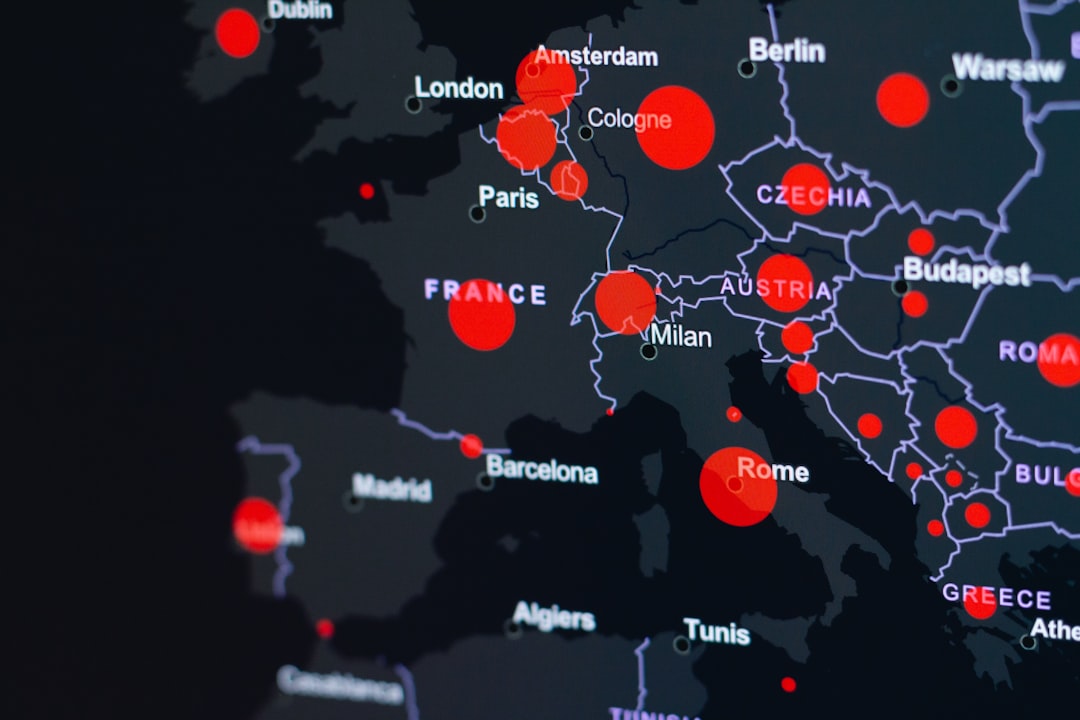No products in the cart.
Cybersecurity Breach Disrupts European Air Traffic: A Wake-Up Call for Businesses
A recent cyberattack on an aviation technology company has thrown European airports into chaos, highlighting the urgent need for robust cybersecurity measures in businesses.
In a world where digital connectivity fuels our daily lives, a recent cyberattack has left European airports reeling. Flights grounded, schedules thrown into disarray, and passengers stranded—a perfect storm of chaos that underscores just how vulnerable the aviation sector has become.
On September 21, 2025, an aviation technology company faced a severe cyber breach, crippling operations at airports across Europe. The attack, which seems to have been orchestrated by a sophisticated group of hackers, sent shockwaves through the industry. With reports of rising delays and cancellations, it serves as a stark reminder: cybersecurity is not just a technical issue; it’s a fundamental business concern.

But how did we get here? Over the past decade, the aviation industry has increasingly depended on technology to manage everything from ticket sales to air traffic control. This dependency has made it more susceptible to cyber threats. According to a recent report, the aviation sector has witnessed a staggering 30% increase in cyberattacks in the last year alone, making this incident both alarming and, unfortunately, expected.
As planes remain idle on runways, the emotional toll on travelers is palpable. Families waiting to reunite, business professionals eager to attend critical meetings, and holidaymakers looking to unwind—all left in limbo. The human element of this disruption is often overshadowed by technical jargon. It’s easy to forget that behind every flight delay is a story, a person whose plans have been upended.
Families waiting to reunite, business professionals eager to attend critical meetings, and holidaymakers looking to unwind—all left in limbo.
Take Sarah, a 29-year-old marketing executive, who was set to fly from London to Frankfurt for a critical client meeting. Her plans, much like the flights, were grounded. “I was already at the airport when I heard the news,” she recounted. “I felt completely helpless. The anxiety of not knowing what would happen next was overwhelming.” Her experience reflects a broader sentiment shared by many travelers caught in this web of uncertainty.
The implications of this cyberattack extend beyond just the immediate chaos at airports. It raises critical questions about the resilience of businesses in the face of digital threats. Are companies prepared for such breaches? Do they have the necessary protocols and training in place to mitigate the damage?
Experts argue that this incident may act as a wake-up call for businesses worldwide. “Organizations need to rethink their cybersecurity strategies,” said Mark Thompson, a cybersecurity consultant. “Investing in robust security measures is no longer optional; it’s imperative.”
In the wake of this attack, businesses must also consider the emotional intelligence of their workforce. How leaders respond to such crises can significantly impact employee morale and overall company culture. Transparency and clear communication become vital. Employees need to feel supported and informed, especially in times of uncertainty.
As organizations navigate this turbulent landscape, they should also look inward. Investing in employee training on cybersecurity protocols not only enhances security but also fosters a culture of vigilance. After all, employees are often the first line of defense against cyber threats.
This incident also spotlights the growing intersection of technology and career skills. Young professionals entering the workforce today must equip themselves with a diverse skill set that includes not only technical prowess but also an understanding of cybersecurity principles. As the job market continues to evolve, those who can navigate the complexities of digital security will undoubtedly stand out.
In the wake of this attack, businesses must also consider the emotional intelligence of their workforce.
Looking forward, the aviation industry—and indeed all sectors—must adopt a proactive approach to cybersecurity. This means regular audits, real-time monitoring, and a commitment to continuous improvement. Moreover, collaboration within the industry could lead to shared intelligence on threats, creating a more resilient ecosystem.
Ultimately, this cyberattack is not just a wake-up call; it’s a clarion call for change. As the world becomes increasingly interconnected, the stakes will only get higher. The question remains: how prepared are we to meet these challenges head-on?











